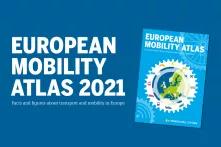
Detected five years ago, ‘Dieselgate’ remains partly unsolved, although national governments and the European Commission have offered a wide range of responses. Consumers criticise the scandal-handling by car manufacturers.

More than four years have passed since systematic cheating on emissions tests of diesel cars was first uncovered. What started with the Volkswagen Group in the United States became a global scandal, dubbed ‘Dieselgate’.
Europe quickly moved to the centre of attention as it was not only the world’s largest diesel market, accounting for 7 in 10 diesel cars sold, but also home to the leading manufacturers of these engines. Besides Volkswagen vehicles, cars of many other manufacturers were subsequently also found to exceed by far the legal limits for nitrogen oxide (NOx) emissions when driven on the road. A large number of investigations are still ongoing and new cases of emissions cheating have emerged. Meanwhile policymakers across the European Union adopted measures to respond to the scandal.
First, authorities and consumers tried to hold carmakers financially and legally accountable. Fines were imposed in several Member States and prosecutors pressed charges against current and former executives. The European Commission initiated a cartel investigation against BMW, Daimler and VW for colluding to restrict the development of emissions control technology. Car owners and consumer groups across Europe took Volkswagen to court. To date, only car owners in Germany have been offered compensation. Unlike what VW agreed with the United States, manipulated cars will not be bought back and the volume of compensation – a total of 830 million euros in Germany – remains a fraction of the ten billion US dollars deal on the other side of the Atlantic.
Secondly, various efforts have been made to clean up the highly emitting cars and vans that are on Europe’s roads and have been estimated to total 51 million vehicles. Only a minority of these cars has been officially recalled and progress is often slow. In most cases, only software fixes for emission control systems were required, although they reduce NOx emissions by only around 25 percent compared to reductions of 60-95 percent achieved with hardware solutions. Reacting to slow progress in cleaning up cars and pressure from court cases, many cities decided to restrict access to city centres for some of these polluting cars. Low-Emission Zones currently exist in more than 250 cities across the continent.
The third type of response to Dieselgate aimed at making new cars cleaner. Most importantly, on-road tests for pollutant emissions were introduced. They allow for less predictable testing and therefore make cheating harder. Recent research, however, indicates that loopholes remain, as cars can still emit high levels of pollution when driven outside the boundary conditions of the test. Moreover, NOx limits for on-road tests are less strict than in the laboratory. The EU has also overhauled vehicle approval procedures, above all to avoid a situation in which national regulators are competing for the market by lax application of laws. Since September 2020, the European Commission has been empowered to review the work of national authorities, test vehicles in circulation and issue EU-wide recalls or impose fines. The above overview shows a wide range of responses to Dieselgate, but also highlights that the scandal has not been fully resolved. Many cities continue to exceed nitrogen dioxide (NO2) limits, most European consumers are still waiting for compensation or an effective fix of their car and a large number of legal proceedings are pending. Two out of three Europeans think that car manufacturers are not doing enough to promote good air quality, which highlights a divide with one of the continent’s largest industries at a critical time marked by profound technological changes and the consequences of the global Covid-19 pandemic.
Sources for data and graphics: urbanaccessregulations.eu, https://bit.ly/34DrTqn; European Commission, State of play of the recall actions related to NOx emissions, https://bit.ly/37SYeeS; Umweltbundesamt, Reale Stickoxid-Emissionen von Diesel-Pkw nach wie vor zu hoch, https://bit.ly/3kFXUU2


